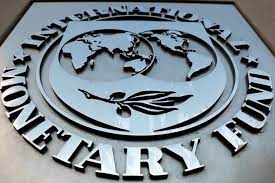Business
IMF Retains 2.5% Growth Estimate For Nigeria, World 6.0%

The International Monetary Fund (IMF) has retained Nigeria’s 2.5 per cent economic growth forecast for 2021.
The institution said this in its World Economic Outlook (WEO) for July titled “Fault Lines Widen in the Global Recovery” released yesterday in Washington DC.
According to it, the slow rollout of vaccines was the main factor weighing on the recovery for Low Income Developing Countries (LIDCs) which Nigeria is part of.
It also retained its 6.0 per cent growth forecast for the global economy for 2021 and 4.9 per cent in 2022, adding that though the global forecast was unchanged from the April 2021 WEO, there were offsetting revisions.
The IMF had at its 2021 Virtual Spring Meetings in April, projected a 2.5 per cent growth for Nigeria’s economy in 2021, up from 1.5 per cent it projected in January.
It said that in LIDCs, the overall fiscal deficit in 2021 was revised up by 0.3 percentage points from the April 2021 WEO, mainly because of the reemergence of fuel subsidies as well as the additional Covid-19 and security related support in Nigeria.
“Still, at 5.2 per cent of Gross Domestic Product (GDP), the overall fiscal deficit remains well below that of advanced and emerging market economies, reflecting financing constraints, about 60 per cent of LIDCs are assessed to be at high risk of or in debt distress.
“The public debt-to-GDP ratio for 2021 is projected at 48.5 per cent.
“Several LIDCs have announced an intention to restructure their debts and some have sought debt relief under the G20 Common Framework (Chad, Ethiopia, and Zambia)”, it said.
On the global scene, the IMF said that uncertainty surrounding the global baseline remained high, primarily related to the prospects of emerging market and developing economies.
It added that although growth could turn out to be stronger than projected, downside risks dominated in the near term.
“On the upside, better global cooperation on vaccines could help prevent renewed waves of infection and the emergence of new variants, end the health crisis sooner than assumed, and allow for faster normalisation of activity, particularly among emerging market and developing economies.
“Moreover, a sooner-than-anticipated end to the health crisis could lead to a faster than-expected release of excess savings by households, higher confidence and more front-loaded investment spending by firms.”
Transport
Automated Points Concession : FAAN Workers Gave 72hrs To Revise Decisions In PH

Transport
FAAN Announces Pick-Up Points for Go-Cashless Cards

Business
Fidelity Bank To Empower Women With Sustainable Entrepreneurship Skills, HAP2.0
-

 News5 days ago
News5 days agoAmend Constitution To Accommodate State Police, Tinubu Tells Senators
-

 Politics5 days ago
Politics5 days agoSenate Urges Tinubu To Sack CAC Boss
-
Business5 days ago
President Tinubu Approves Extension Ban On Raw Shea Nut Export
-

 News5 days ago
News5 days agoDisu Takes Over As New IGP …Declares Total War On Corruption, Impunity
-
Business5 days ago
Fidelity Bank To Empower Women With Sustainable Entrepreneurship Skills, HAP2.0
-
Sports5 days ago
NDG: Rivers Coach Appeal To NDDC In Talent Discovery
-
Politics2 days ago
2027: NIGERIANS FAULT INEC ON DIGITAL MEMBERSHIP REGISTER DIRECTIVE
-

 Environment2 days ago
Environment2 days agoLAWMA Director Says Sweeping Reforms Have Improved Waste Collection

